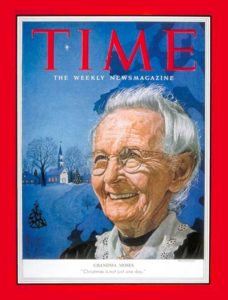 You may have found yourself thinking, I am just too old for that now. What is your “that?” A dream long abandoned? Who told you that you were too old? Was it something you just assumed? Are societal norms—a common source of paradigms—the right standard for determining what are age-appropriate activities?
You may have found yourself thinking, I am just too old for that now. What is your “that?” A dream long abandoned? Who told you that you were too old? Was it something you just assumed? Are societal norms—a common source of paradigms—the right standard for determining what are age-appropriate activities?
My son Adam and I took a father and son vacation to New York City earlier this month. He had just finished his first year of college so it was a celebration of sorts—and as good as an excuse as any to take on the Big Apple.
My wife and younger son stayed home. Don’t feel bad for them—seriously. My wife has been to New York City on several occasions with her sisters, and has left the rest of us home. As for my youngest son, he will get his chance.
We stayed at an apartment that we booked through Airbnb. It was on the upper west side of Manhattan in a nice neighborhood. One day, while walking by a schoolyard, Adam asked me, “When do you become too old to go swing on a swing set?” Then, looking right at me, he asked, “When does it go from being okay, to you’re a creepy old guy on a swing?” He is 18 years old, I am 51. Hmmm. We didn’t go swinging.
My son’s question induced in me a mental crisis. Was I too old to pursue my current dreams? Sure, aging does impose some limitations—playing professional sports usually goes by the wayside as does child movie star and child prodigy. None of these are applicable to me—in case you were wondering.
I do, however, love writing and speaking and my dream is to make a living doing those things—but I am “older” now. Have I squandered my younger productive years chasing a “proper” career? Isn’t dream chasing really a younger person’s game?
In a panic, I got on the internet and researched people who were “late bloomers.” I found some very encouraging articles. Yes, there is apparently hope of success beyond your 40s. Thank the heavens above and all those old codgers who proved it. From painting to politics to starting businesses or founding a religion, the world is full of people who found success long after the flower of youth had wilted and died. (By the way, Steven Covey was 57 years old when Seven Habits was first published in 1989.)
When Adam and I returned from our trip, we found that the ceiling in our kitchen had been torn down. My wife had proceeded with her remodeling plans while we were gone—I guess it serves me right for leaving her home while we played in NYC. Now that the old false ceiling is gone, a vaulted space has been exposed, revealing light fixtures that had once been hidden. It has made the kitchen a brighter and more airy place.
All of this contemplating about age got me wondering how many false ceilings do we put on our thinking about what we are or aren’t capable doing—stuff we should just tear down? Mental ceilings are a form of paradigm—and paradigms are a big deal in The Seven Habits. I will have more to say about them in later posts.
What mental ceilings do you find yourself looking at lately? Do they need to be torn down? Here’s to all the old codgers out there who proved age appropriate activities are a whole lot more comprehensive than we often think.
You can make your own decision about swinging on swing sets.
If you like this post – share it. Thanks for reading!
